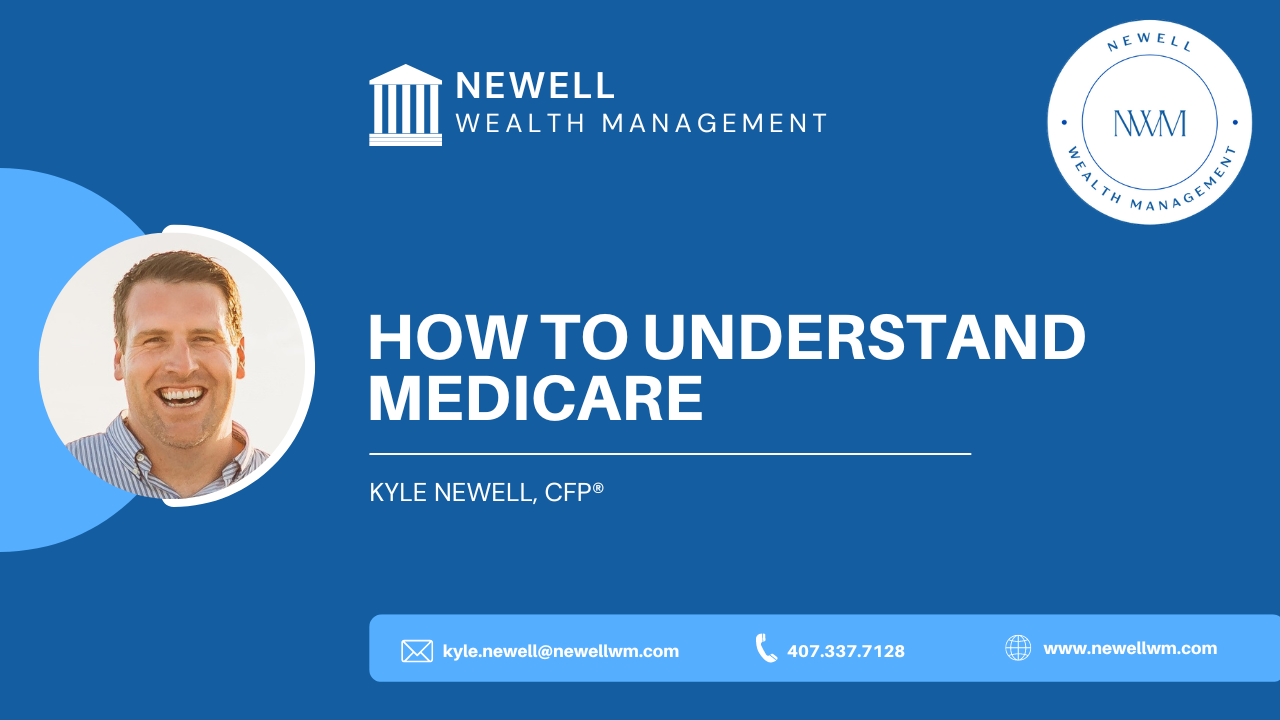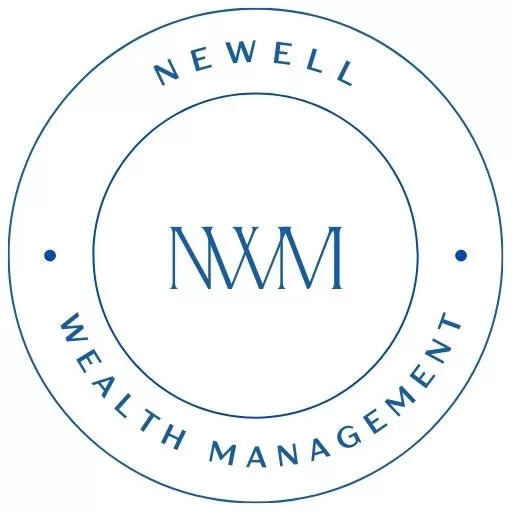How to Understand Medicare

Medicare has many moving parts, especially if you’re getting close to retirement or age 65 when you’re actually eligible to be able to use Medicare. Today I wanted to go over a few of the different Medicare components. Understanding the different types of programs and their advantages and disadvantages is essential. While I can’t go into all the specifics, the purpose is to give you a good high-level overview of what Medicare is and what some of the options are with Medicare.
A quick note before we get started. Medicare is different from Medicaid. Medicaid is the insurance program used to pay for health care for those who really can’t afford any health care, whether retired or not. The Medicaid program is kind of a stop-gap that the government provides to provide insurance for low-income and low-asset individuals, which is different from Medicare.
Medicare is an age-based program that starts at age 65 and can provide health insurance at a very cost-competitive rate, mainly because the government is subsidizing much of the costs associated with Medicare. When we think about Medicare, there are a few different components to consider.

Traditional Medicare
Traditional Medicare is broken into several components: Medicare Part A, Medicare Part B, and a bunch of other letters. You have probably heard about the main three, Part A, Part B, and Part D, for drugs. Here are the basic definitions of each to help you understand them in the simplest way.
- Medicare Part A: Covers your general hospital visits or any sort of major medical hospital event.
- Medicare Part B: Covers regular doctor visits
- Medicare Part D: Covers prescription drugs
Traditional Medicare does not really have any out-of-pocket maximum or out-of-pocket deductible that you reach, so it’s a potentially unlimited amount of costs that one could incur in retirement. Retirement is certainly not a time when you want an unknown amount of health costs and insurance coverage. Retirement age is when the government provides these gap plans.
Each different plan has a letter associated with it to identify the type of gap it provides coverage for, such as the three mentioned above. These gap plans cover anything extra. With traditional Medicare, you will generally pay an additional cost out of pocket for your monthly premium regarding the gap Plans Part B and Part D.
Medicare Part A comes at no cost when you reach age 65, which is excellent. No matter what you do, you must sign up for Part B. The cost is around $150, give or take a little, each year. It’s also good to know that it goes up with inflation.
Health insurance and health care are huge concerns for many people because it’s unknown and different. If you choose to use traditional Medicare plans, then you need some sort of gap plan to limit the amount of out-of-pocket maximums you may pay.
Medicare Advantage Plans
These plans are different from traditional Medicare. They are usually offered in a format similar to how you would have health insurance through a traditional job, like an HMO, PPO, or what have you. The difference is that while you still pay for Medicare Part B, which again covers your regular doctor visits, the Advantage plan can cover everything else. It’s equivalent to adding an employer health insurance plan to your Medicare Part B.
Typically, these come at a much more competitive cost than traditional Medicare. You’ll not pay nearly as much out of pocket on a regular premium basis. However, there are limitations to these plans; generally, they are in-network and out-of-network plans, which means they only work within the region around your location.
In Florida, there are quite a few options. I’ve heard there are some limited options depending on which state you are in. Essentially the advantage plans are typically cost-effective for most retirees. Some of them don’t require an additional cost. You’re able to sign up, and your Medicare Part B premium is basically covering the entire Advantage plan.
From a cost or coverage perspective, that may or may not be what you need. It’s a good idea to look at the different options. The Medicare website does give you some tools to do some screening if you want to screen for your doctors or certain prescription drugs that you might be taking to see if those are covered.
During open enrollment for the Advantage plans, many vendors advertise to convince you to sign up for their plan. Insurance is a business, and not every company can offer everything. Each one will have different advantages. Be sure to do your due diligence when looking at the Advantage plan. While it might come at a better cost on a month-by-month basis, you may have a higher out-of-pocket deductible.
Maybe you like to travel and will be all over the country. If you’re out of your area, your cost can be much higher. For example, if you visit the Smoky Mountains and twist your ankle during a hike, you may pay more for care that is considered out-of-network.
How to evaluate the plans
- Look at the cost
- Evaluate the coverage
- Are your doctors and prescriptions covered
- What are the out-of-pocket costs
- In-network vs. out-of-network coverage
- What’s the worst-case scenario, and how do you appropriately plan for it
Once you have all that information, ensure your monthly budget accounts for those costs. Have a good emergency fund to pay for any surprise costs when it comes to Medicare insurance in particular.
As a reminder, Medicare does not cover any long-term care. Medicare only covers up to 100 days of any long-term care needs. After that, you are on your own if your health is not improving. Long-term care is a key and often overlooked topic I recently discussed in more detail. To get more detail and better understand long-term care options and the costs associated with them, read “How to Pay for Long-Term Care,” or watch this video.
Sorting it all out
There are many considerations with Medicare. Add to that all the various television and direct mail advertising, and it’s easy to be confused or overwhelmed. Two simple questions can help you understand Medicare and the option that may be best for you.
- Do you want traditional Medicare, which may have a higher premium but gives you better coverage throughout the country?
- Do you prefer an Advantage plan that offers lower premiums but limits your coverage to in-network and out-of-network
I hope you found this high-level look at Medicare helpful. As you move closer to retirement, you may have questions about your financial situation. As a fee-only financial planner, I am happy to help.
We can meet virtually or in person if you live in the Central Florida area. Please email me at kyle.newell@newellwm.com, call/text at 407.337.7128, or schedule a meeting at Schedule – Newell Wealth Management (newellwm.com)
Important Information
Newell Wealth Management, LLC (“NWM”) is a registered investment advisor offering advisory services in the State of FL and in other jurisdictions where exempted. Registration does not imply a certain level of skill or training. The presence of this website on the Internet shall not be directly or indirectly interpreted as a solicitation of investment advisory services to persons of another jurisdiction unless otherwise permitted by statute. Follow-up or individualized responses to consumers in a particular state by NWM in the rendering of personalized investment advice for compensation shall not be made without our first complying with jurisdiction requirements or pursuant an applicable state exemption.
All written content on this site is for information purposes only and is not intended to provide specific advice or recommendations for any individual. Opinions expressed herein are solely those of NWM, unless otherwise specifically cited. Kyle Newell and NWM are neither an attorney nor an accountant, and no portion of this website content should be interpreted as legal, accounting or tax advice. Material presented is believed to be from reliable sources and no representations are made by our firm as to other parties’ informational accuracy or completeness. There is no assurance that the views or strategies discussed are suitable for all investors or will yield positive outcomes. Investment involves risks including possible loss of principal and unless otherwise stated, are not guaranteed. Any economic forecasts set forth may not develop as predicted and are subject to change. All information or ideas provided should be discussed in detail with an advisor, accountant or legal counsel prior to implementation.
